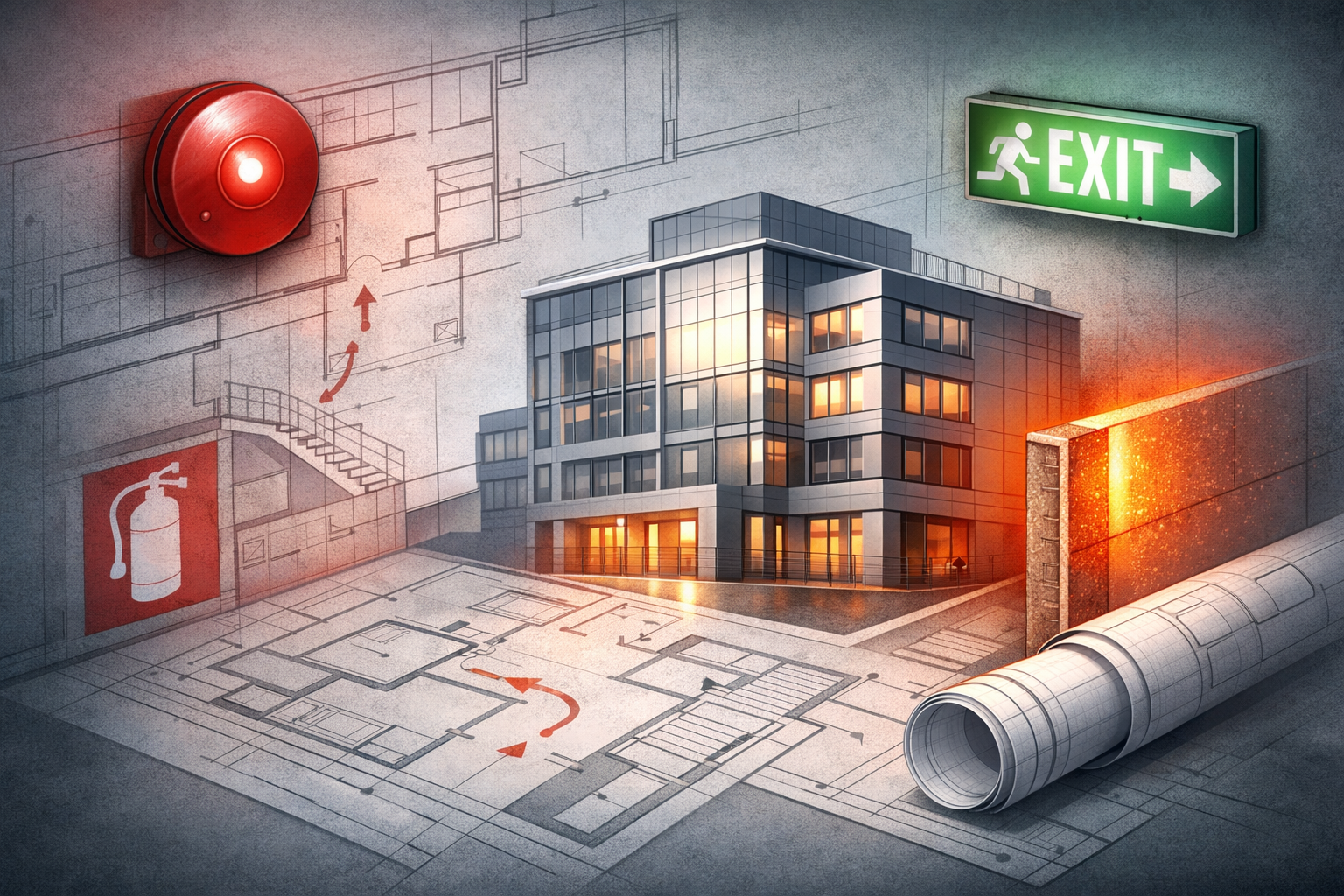Do you own a business and need electrical services? Are you concerned about the cost of commercial electrical services, or not sure where to start looking for help? If so, this guide is for you! We'll provide an overview of what commercial electrical services are and how to choose the right provider.
Highland Services are here to break down each step in the process - from understanding what types of services are out there to choosing a qualified contractor who won't overcharge you. By the end of this article, you should have a better understanding of commercial electrical services and feel confident when shopping around for providers.
Commercial Electrical Services
Commercial electrical services refer to any type of installation, repair or maintenance of an electric system in a commercial setting. This includes the wiring and other components that are necessary for the proper functioning of a building's electricity. Commercial electrical installations involve more complex and specialised work than residential installations due to their larger scale. They require highly skilled technicians and experienced professionals who understand the intricacies of working with such systems.
The scope of commercial electrical services can range from simple repairs on existing wiring to upgrading entire electrical systems in order to meet new safety standards or accommodate increased power requirements. It also involves installing equipment which may include generators, transformers, circuit breakers, switches, outlets and fixtures as well as determining the best way to layout wiring throughout a space according to fire codes and local regulations. Ultimately, these services ensure businesses have reliable access to safe and efficient electricity at all times.

Types of Electrical Services Offered
Commercial electrical services can be divided into two main categories: design and installation. The design includes the assessment of a business's needs, such as its power requirements, and the layout of any necessary wiring to ensure safety and efficiency. Installation includes running cables through walls and ceilings, setting up conduit pipes for future wiring projects, installing light fixtures and other equipment, testing systems to make sure they are working properly, giving the customer their commercial electrical certificate upon completion, and more.
The scope of work undertaken by commercial electrical contractors is vast. For example, businesses may opt for regular maintenance visits or require emergency repair services in order to keep their operations safe and efficient.
Safety Considerations When Hiring a Commercial Electrician
When it comes to electrical services, safety should always be a top priority for business owners. It's important to hire a reputable commercial electrical company that has the knowledge and experience necessary to safely complete any job. Make sure they have all of the right certifications and licenses, as well as up-to-date insurance coverage. Also, ask if they are certified in your state or region to perform any type of commercial electrical testing. This will help ensure that all work is done properly and meets local regulations.

Designing an Electrical System
As with any project, planning is key when creating a successful business electrical system. Begin by considering your company’s current needs and how they may need to change in the future. Then consult with technicians who specialise in commercial-grade wiring systems to develop a custom plan for your company's requirements.
When constructing an electrical system, there are several components which must be taken into account. This includes determining
- the number and type of outlets needed;
- what kind of lighting fixtures will be used;
- if there will be any specialised equipment or machinery requiring additional power sources;
- and any other special features such as surge protection or backup generators.
Once these elements are identified, your electrician can create a customised design that meets all safety codes and regulations while also addressing both the present and potential future needs of your business. With careful attention paid to each detail during every phase of installation, you'll have peace of mind knowing your business is protected by reliable electricity for years to come.
Troubleshooting Electrical Issues
When it comes to electrical problems, the first step is to determine what’s wrong. If you notice a flickering light, for example, there could be several possible causes. It may just need a new bulb or it could be an issue with the wiring. To isolate the problem and find out which one it is, start by checking the circuit breaker box in your business building. Make sure nothing has been tripped or overloaded. You should also check any exterior outlets; look for frayed cords or other obvious signs of damage.
If these steps don't solve the problem, contact a professional electrician right away as they have specialized tools and expertise that can help diagnose more complex issues quickly and safely. A professional electrician can also provide advice on how to maintain your electrical system properly so you avoid future problems down the line.

Testing and Maintenance Services
Testing and maintenance services are essential for any business that relies on electrical systems. Regular testing of your commercial electric system is critical to ensure the safety of employees, customers, and property. Maintenance services should be conducted regularly to prevent malfunctions or damage from occurring in the future.
Here are some key benefits of regular testing and maintenance:
- Increased Safety:
- Testing helps identify risks before they become a problem.
- Professional technicians can detect potential hazards that might not be visible to the untrained eye.
- Improved Efficiency:
- Regularly maintained systems run more efficiently, saving you money on energy costs.
- Malfunctioning equipment wastes time and resources that could be used elsewhere in your business.
Regular testing and maintenance of your commercial electric system will help protect your business from costly repairs, downtime, and liability claims due to accidents or fires caused by faulty wiring or malfunctioning equipment. Investing in these services now may save you money in the long run and give you peace of mind knowing that your electrical system is safe and reliable.
How Often to Schedule Electrical Testing and Maintenance?
How Often to Schedule Electrical Testing and Maintenance?
It is important to consider how often electrical testing and maintenance should be scheduled. Regularly scheduling these services can help ensure that businesses are up-to-date with safety regulations, as well as reduce the risk of unexpected outages or breakdowns.
It is recommended for businesses that operate machines or other equipment which require extensive use of electricity to schedule regular tests and maintenance checks. Additionally, if any changes have been made to an existing system or new wiring has been installed, this should be tested immediately following installation.
It is essential to make sure that all electrical systems are regularly inspected by qualified technicians in order to prevent potential problems from arising. Scheduling routine electrical tests and maintenance will not only keep employees safe but can save money in the long run by preventing costly repairs due to neglect or damage caused by improper installation.
Conclusion
Safety should always come first when dealing with electricity. Make sure that all installations meet regulations and that any maintenance or repair work is done by an experienced professional. Scheduling regular tests and inspections can help you keep your system up-to-date and running smoothly.
Overall, taking time to research commercial electrical services and ensuring safety protocols are followed will ensure optimal performance and savings for your business. With the right preparation, you'll have peace of mind knowing that your company has reliable power sources at all times.
Finally, we are proud to announce that Highland Construction has achieved a SafeContractor accreditation, demonstrating our commitment to safety and encouraging others to prioritize safety as an essential part of any construction project. By working together to maintain safe work practices, we can create a culture of safety that benefits everyone involved.



.png)